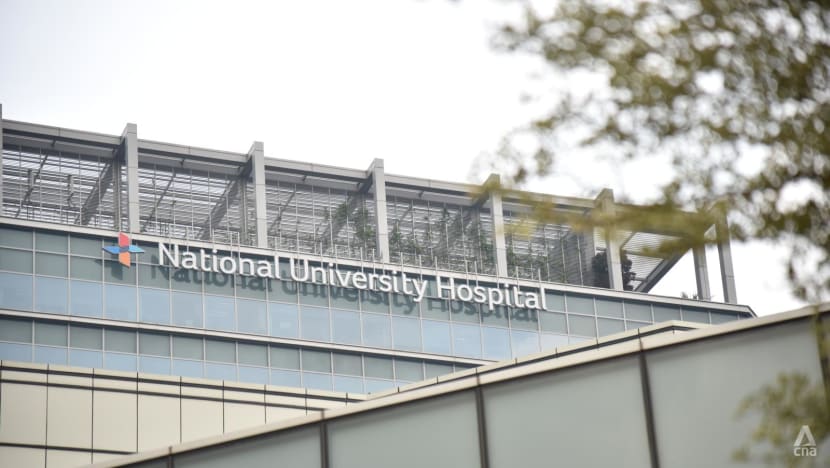- Joined
- Aug 20, 2022
- Messages
- 16,237
- Points
- 113
Singapore confirms one imported case of vaccine-associated polio; low risk of community transmission
The infant was taken directly to NUH upon arrival in Singapore and isolated upon admission. Three contacts have also been quarantined as a precaution.
07 Feb 2025 08:00PM (Updated: 07 Feb 2025 08:40PM)
SINGAPORE: The Ministry of Health (MOH) on Friday (Feb 7) confirmed one imported case of vaccine-associated paralytic poliomyelitis in Singapore, adding that its findings so far indicate a low risk of community transmission.
The patient is a five-month-old female Indonesian infant who arrived on Jan 26 for medical treatment.
MOH said the case is immunocompromised and was previously vaccinated with one dose of oral polio vaccine (OPV) and one dose of inactivated polio vaccine (IPV) in Indonesia.
She had developed fever, acute floppiness and paralysis of the lower limbs in December 2024 while in Indonesia. Poliomyelitis was not suspected by her doctor then, said the ministry.
On Jan 26, she was medically evacuated for treatment of her symptoms and admitted directly to the National University Hospital (NUH) upon arrival in Singapore. The infant is currently in stable condition.
“Our findings so far indicate low risk of community transmission. The case was conveyed directly to NUH upon arrival in Singapore and isolated upon admission. She was also placed under the appropriate infection prevention and control precautions to prevent further spread once suspected of poliomyelitis infection,” said MOH.
“Currently three close contacts, who are family members or caregivers of the case, have been quarantined as a precautionary measure.”
Poliomyelitis is caused by the poliovirus and is mainly transmitted through food infected with faecal material.
What is polio?
Poliomyelitis, more commonly known as polio, is a highly infectious disease that can affect muscles and nerves.This can lead to permanent paralysis of the limbs in a small number of people. Most people infected with polio will not have any symptoms or have only minor symptoms which often go away completely, according to the HealthHub portal.
Polio is spread by contact with infected people, such as via oral contact with body fluids or faecal material. Some symptoms that can happen at the beginning include fever, fatigue, headache, vomiting, neck stiffness and pain in the limbs.
The disease can take several forms. Those who contract nonparalytic polio may experience severe flu-like symptoms. This illness does not cause paralysis, says Mayo Clinic.
Paralytic polio is considered the most serious form of the disease. Signs and symptoms include intense pain, tingling or prickling sensations, muscle spasms, as well as muscle weakness progressing to limp paralysis.
In particularly severe cases, Mayo Clinic also notes that patients may experience paralysis of muscles involved in breathing and difficulty swallowing.
VACCINATION
Vaccination is the most effective protection against poliomyelitis, alongside maintaining high standards of hygiene and sanitation, said the health ministry.There are two vaccines for polio – OPV, which contains live attenuated or weakened poliovirus, and IPV, which does not contain any live poliovirus.
Many countries have progressively switched to IPV, and Singapore stopped using OPV in 2021, said MOH.
“Vaccine-associated paralytic poliomyelitis is an extremely rare adverse event that occurs when an individual develops paralytic polio after receiving OPV. The risk is higher for immunocompromised persons, for whom IPV is recommended instead of OPV.”
Singapore has not reported any locally acquired cases of polio since 1978. The last polio case reported in 2006 was an imported case, added the ministry.
“Singapore has maintained our polio-free status by continuing high polio vaccination coverage, high standards of environmental hygiene and sanitation, and having an established surveillance system in place to detect possible cases of poliomyelitis.”
Under the National Childhood Immunisation Schedule (NCIS), children receive a total of five vaccine doses – three IPV doses for infants at two months, four months, and six months, with another two booster doses of IPV at 18 months and 10 to 11 years old respectively.
“As the IPV does not contain live virus, it carries no risk of vaccine-associated paralytic poliomyelitis. Vaccinations in the NCIS are available free to all Singaporean children at Community Health Assist Scheme General Practitioner clinics and polyclinics,” said the ministry.
